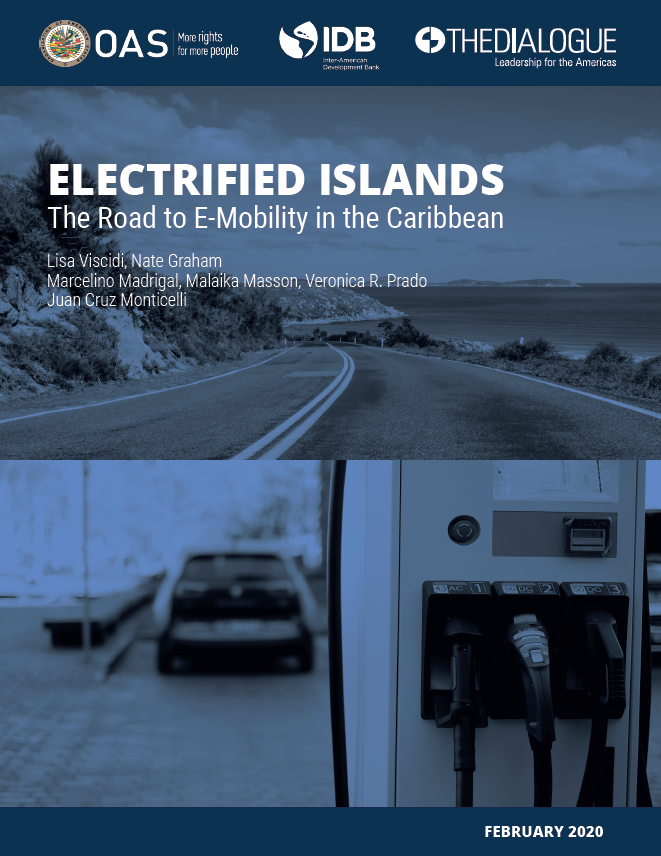Bolivia & the Global Fight Against Climate Change
In the past year, the Bolivian government has emerged as an outspoken critic of climate change policies.
Caribbean islands are in many ways ideal markets for electric vehicles (EVs), and several Caribbean jurisdictions have made significant advances in promoting electric mobility, according to a new report by the Inter-American Dialogue, Inter-American Development Bank, and Organization of American States. Barbados, for example, has among the highest EV use per capita in the world, while the Dominican Republic is rolling out hundreds of public charging stations in the coming months.
Several factors make the region ideal for electrification of transport. Caribbean islands are heavily dependent on oil imports, which makes fuel expensive and exposes them to oil price and foreign exchange risk. Transport sectors account for a large share of energy consumption. Renewable energy resources are abundant, meaning the environmental benefits of EVs could be maximized if this clean energy potential were exploited. And Caribbean islands are small, naturally mitigating range anxiety and requiring less extensive charging networks.
To be sure, Caribbean islands currently face a number of challenges, including a lack of public awareness, concerns about the depletion of government revenues from fuel taxes, insufficient charging infrastructure, a lack of trained EV sales and maintenance personnel, and the high use of oil for power generation, which reduces the greenhouse gas reduction benefits of EVs.
The report finds, however, that in many Caribbean islands, important public and private sector efforts are underway to stimulate EV demand. Some governments have cut or zeroed out import duties on EVs, which has already made some models competitive with conventional vehicles. Long-term renewable energy and transportation goals are communicating a strong commitment to EVs, thereby increasing certainty for utilities, automakers and dealers. In addition, public transport and government and commercial fleets are enhancing the visibility of EVs and proving their performance to the public. Plus, utilities and some independent providers are becoming involved in the deployment and operation of charging infrastructure, helping set the foundation for mass electrification of the transport sector.
Analyzing five case studies—Barbados, Bermuda, Cayman Islands, Jamaica, and the Dominican Republic—the authors conclude with actions that Caribbean governments and other stakeholders can take to stimulate EV adoption. They note that firstly governments should establish and communicate electric mobility goals to automakers, dealers, and utilities. At the same time levels of public awareness need to be better understood and increased. Utilities, for their part, should view the electrification of transport as an opportunity for growth, and governments should define the role of utilities in incentivizing electric mobility. Governments should also analyze fiscal effects of large-scale EV use in the long term. Caribbean islands should seize opportunities to electrify public transportation and government and commercial fleets. Finally, the authors note that the issue of electric mobility is multi-sectoral and all stakeholders should be engaged in a dialogue to coordinate efforts and align incentives.
Read coverage of this report in Foreign Affairs.


In the past year, the Bolivian government has emerged as an outspoken critic of climate change policies.
As global temperatures continue to rise with the global community stalled on any way to stop them, countries must prepare to adapt to increasingly volatile environmental conditions.
What are Caricom’s greatest achievements? Could closer integration benefit the region and, if so, what steps would have to be taken to achieve it?
